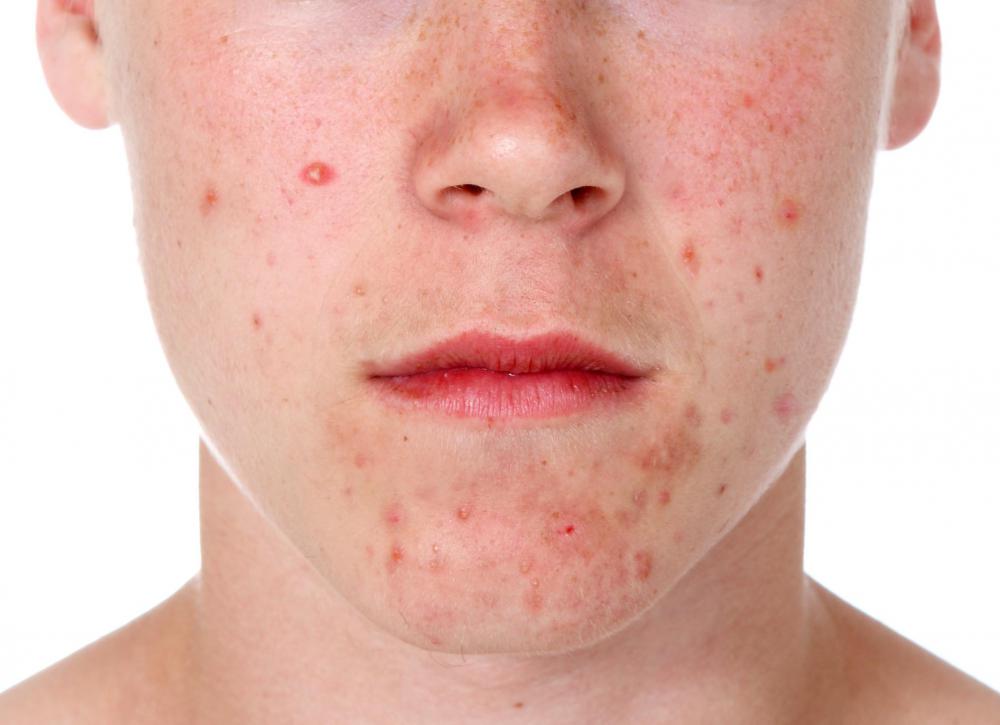At WiseGEEK, we're committed to delivering accurate, trustworthy information. Our expert-authored content is rigorously fact-checked and sourced from credible authorities. Discover how we uphold the highest standards in providing you with reliable knowledge.
What are the Most Common Hydrocortisone Side Effects?
Hydrocortisone, the drug form of the natural steroid hormone cortisol, has become a staple in treating a wide variety of illnesses, from skin inflammation to acne to arthritis to asthma. It even can be used in immunosuppressive form to treat certain types of cancer. Hydrocortisone is classified as a glucocorticosteroid, and the body responds well to the application of it in various forms; therefore, hydrocortisone side effects are few. Perhaps the most well-known reactions are dryness and itching of the skin.
Other, less common, hydrocortisone side effects can include increased appetite and weight gain, which is most commonly reported by females, as well as puffiness in the face and neck. Numbness and burning of the skin, although rare, also have been recorded. In some rare cases, hydrocortisone side effects can include mental and emotional issues, such as worsening an existing depression and advancing Alzheimer's, as well as severe skin issues, such as blood blisters, finger numbness, and skin sensitivity.

An important thing to note with hydrocortisone, however, is that it comes in many forms. Most people are familiar with hydrocortisone cream, but this drug also can be administered as a gel, foam, spray, or lotion. In addition, some patients may take it orally or as an injectable. Therefore, when researching side effects, it is important to keep in mind these diverse forms of application as well as the broad spectrum of illnesses hydrocortisone treats.

As a result, hydrocortisone side effects can be wide ranging and should really be examined specifically more than generally. For example, the most common adverse effects of hydrocortisone cream are burning, dryness, itching, or mild skin irritation. Extreme effects could include allergic reactions like hives and a rash, weight gain, and excessive hair growth. These side effects are typical for hydrocortisone ointment as well as for topical hydrocortisone.

Another way in which this medication is used, as a hydrocortisone enema, could cause mild irritation and dryness, or in severe cases fever, chills, and mental or mood changes. Hydrocortisone for acne, otherwise called hydrocortisone acetate, can cause the typical dry skin and itching. In addition, the more atypical muscle weakness, rectal pain, and puffiness in the face are possible.
Overall, hydrocortisone is largely considered a safe and effective drug across the worldwide medical community. To assist with researching hydrocortisone side effects, however, the U.S. Food and Drug Administration (FDA) provides a comprehensive listing online as well as a guide to reporting problems. Healthcare providers also should be consulted before administering the drug.
AS FEATURED ON:
AS FEATURED ON:













Discussion Comments
I had topical ultrasound treatments with cortisone cream by a physical therapist on my painful hips for several months. My ankles also became swollen. Over two months, I gained a little over 40 pounds! That was 5 years ago. How can I reverse the effects of the cortisone?
Would a cortisol blood test at 8 a.m. and four hours later show anything?
Post your comments